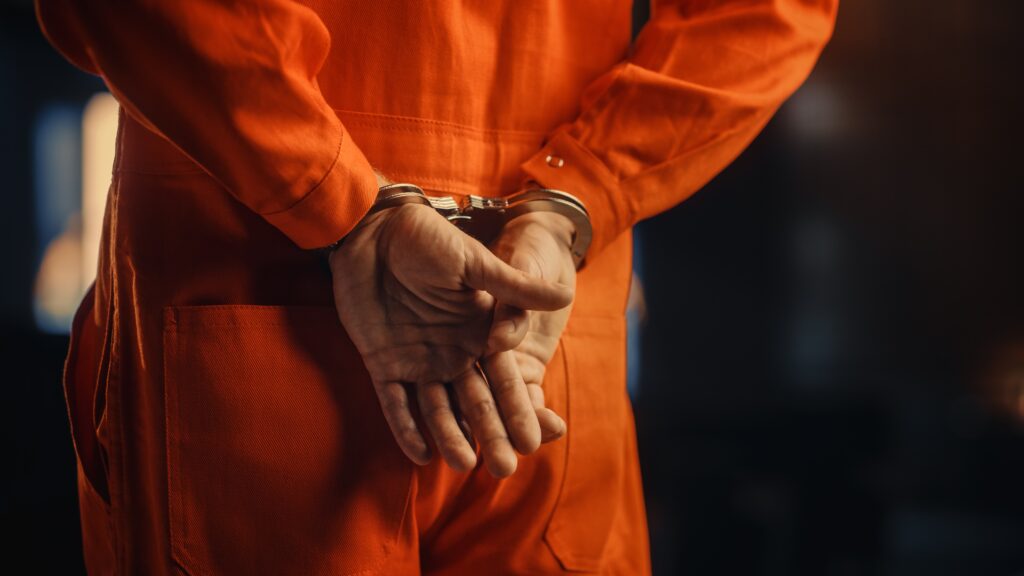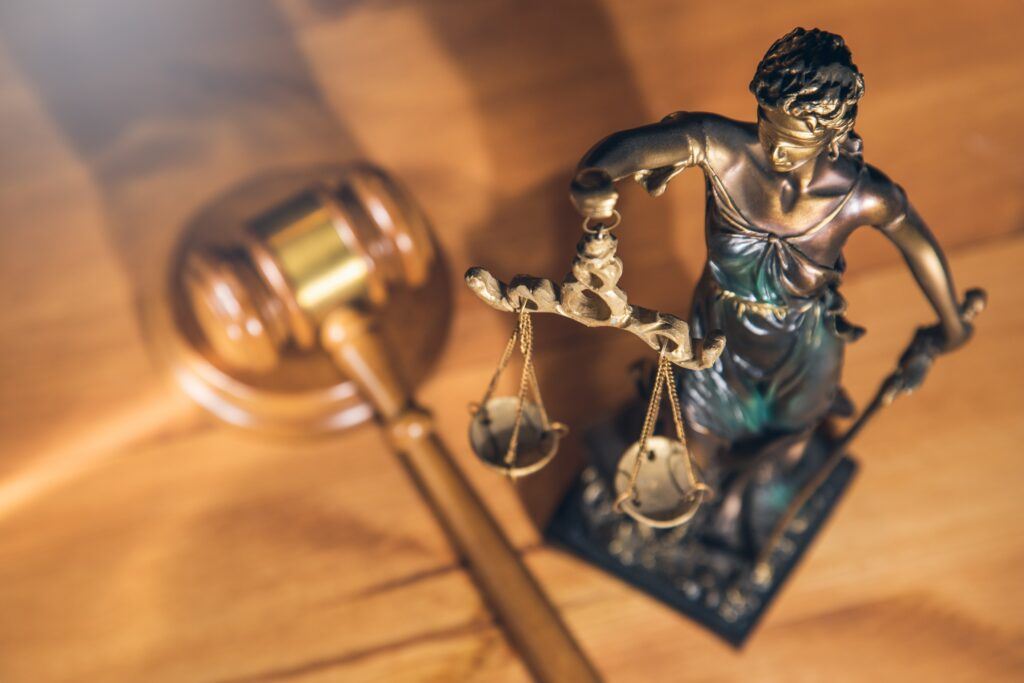Federal child pornography and exploitation charges are extremely serious and can lead to various penalties and collateral consequences upon conviction. Obviously, the best way to avoid these consequences is to avoid a conviction altogether.
An experienced child pornography defense lawyer can determine if you are eligible to raise one or more legal defenses in response to your charge. If so, your lawyer can take your case to trial and argue the appropriate defenses on your behalf in pursuit of a dismissal. Alternatively, your lawyer can negotiate a favorable plea deal with the federal prosecutor handling your case. Throughout the process, your attorney will safeguard your rights and aggressively advocate for your legal interests.
Legal Elements of a Federal Child Pornography and Exploitation Charge
Federal child pornography and exploitation charges are severe offenses in the United States, governed primarily by federal laws.
Possession, Distribution, and Production:
Child pornography charges often involve three main activities: possession, distribution, and production.
- Possession – This means having any form of child pornography, whether on a computer, phone or in physical form. The law defines child pornography as any visual depiction of sexually explicit conduct involving a minor (anyone under 18 years old).
- Distribution – This occurs when someone shares or sells child pornography. This can be done through various means, including mail, the internet, or peer-to-peer networks.
- Production – This is the most severe charge and involves creating child pornography. This includes taking photos, making videos, or even inducing minors to engage in sexually explicit conduct.
Intent and Knowledge:
For someone to be convicted of these charges, the prosecution must prove that the person knowingly engaged in these activities. This means the accused must have known that the material involved a minor and that the conduct depicted was sexually explicit. It’s not enough to possess child pornography accidentally; there must be clear evidence of intent and awareness.

Interstate or Foreign Commerce:
Federal jurisdiction often comes into play because these activities typically involve interstate or foreign commerce. This means that the materials or activities crossed state lines or involved the use of the internet, which is regulated by federal law.
The Alleged Victim’s Age:
A crucial element is the age of the alleged victim. The prosecution must prove that the individual depicted in the material is a minor. This often involves expert testimony and forensic analysis to confirm the age of the person in the images or videos.
Potential Penalties and Collateral Consequences Upon Conviction for Child Pornography and Exploitation at the Federal Level
Being convicted of child pornography and exploitation charges at the federal level carries severe penalties and far-reaching collateral consequences. Here’s what those look like:
- Prison Sentences – The most immediate penalty for federal child pornography and exploitation convictions is imprisonment. For possession of child pornography, sentences can range from 5 to 20 years, depending upon factors like the number of images and the age of the victims depicted. Distribution or production of child pornography carries even harsher penalties, with prison sentences ranging from 15 to 30 years. Repeat offenders or those with prior convictions can face even longer sentences.
- Fines – Alongside prison time, hefty fines may be imposed. These fines can reach up to $250,000, reflecting the seriousness of the offense. The fines are intended to serve as a deterrent and to punish those convicted financially.
- Supervised Release – After serving their prison sentence, individuals convicted of these crimes are often placed under supervised release, sometimes for life. This means they must regularly check in with a probation officer and comply with strict conditions, such as avoiding contact with minors and undergoing regular monitoring of their internet usage.
- Sex Offender Registration – A federal conviction for child pornography or exploitation typically requires registration as a sex offender. This registration is public and often lasts for life. It includes providing personal information to law enforcement, which is then made available to the community. This registration can limit where the individual can live and work, as many places have restrictions on where sex offenders can reside.
- Collateral Consequences – The effect of a conviction extends beyond legal penalties. Individuals face significant social stigma and difficulties in their personal lives. Employment opportunities are severely limited, as many employers are unwilling to hire someone with a sex offense on their record. Housing can also be challenging to find due to restrictions on where sex offenders can live.
- Loss of Rights – Convicted individuals often lose certain rights, such as the right to vote or possess firearms. These losses further isolate them from society and limit their ability to fully reintegrate.
- Family and Social Impact – The conviction can strain or sever relationships with family and friends. The social stigma and legal restrictions make it difficult for individuals to maintain or rebuild personal connections.
Possible Legal Defenses to a Federal Charge for Child Pornography and Exploitation
When someone is charged with federal child pornography and exploitation, the consequences are severe. However, there are several defenses that an accused person can use to fight these charges. Here are some of the most common defenses:
- Lack of Knowledge – One possible legal defense is that the accused did not know they possessed or distributed child pornography. For instance, someone may download a large number of files without knowing that some contain illegal material. If the accused can show that they were unaware of the content, this can be a strong defense. The prosecution must prove that the person knowingly possessed or distributed the material.
- Accidental Possession – Another defense is accidental possession. This can happen if someone unknowingly receives child pornography through email or other means. If the accused can demonstrate that they did not intentionally acquire the material, they can avoid conviction. The key is proving the lack of intent to possess the illegal content.
- Illegal Search and Seizure – The Fourth Amendment protects against unreasonable searches and seizures. If law enforcement obtained evidence without a proper warrant or in violation of the accused’s rights, then that evidence may be inadmissible in court. If crucial evidence is thrown out, the prosecution’s case may fall apart.
- Entrapment – Entrapment occurs when law enforcement induces someone to commit a crime they would not have otherwise committed. If the accused can prove that police officers or undercover agents coerced them to engage in illegal activities, this can be a valid defense. The defense must show that the idea of committing the crime originated with the government, not the accused.
- Mistaken Identity – Sometimes, a person may be wrongly accused because of mistaken identity. This can happen if someone else uses the accused’s computer or internet connection to access or distribute child pornography. If the defense can prove that another individual was responsible, the charges may be dismissed.
- Lack of Intent to Distribute – For distribution charges, the prosecution must prove the intent to distribute. If the accused can show that the files were never shared or distributed, and were only for personal use (though still illegal), it may reduce the severity of the charges or the penalties.
Plea Bargains on a Federal Charge for Child Pornography and Exploitation
Plea bargains are agreements in criminal cases where the accused individual (in other words, the defendant) agrees to plead guilty to a lesser charge – or to one of several charges – in exchange for concessions from the prosecutor. These agreements are common in the federal criminal justice system, including in cases involving child pornography and exploitation.

Federal charges for child pornography and exploitation are severe. They often carry mandatory minimum sentences, which means judges are required to impose at least a certain number of years in prison. For example, possessing child pornography can lead to a minimum of 5 years in prison, while production or distribution can result in much longer sentences, often starting at 15 years.
When facing such harsh penalties, defendants may consider a potential plea bargain. The prosecutor may offer a plea deal to avoid the time, expense, and uncertainty of a trial. In return for pleading guilty to a lesser charge or to fewer counts, the defendant may receive a reduced sentence. This can be beneficial for the defendant, who avoids the risk of a much longer sentence if convicted at trial. For the prosecutor, it ensures a conviction and a certain level of punishment without the need for a lengthy trial.
However, plea bargains in these cases are not straightforward. Because of the serious nature of child pornography and exploitation crimes, prosecutors and judges are often reluctant to reduce charges significantly. The public and victims’ families demand harsh penalties for these offenses. Thus, while a plea bargain may reduce a sentence, it will still likely involve substantial prison time.
For instance, a defendant charged with multiple counts of producing child pornography may be offered a deal to plead guilty to fewer counts. This can reduce the overall sentence from several decades to a still significant but shorter term of imprisonment. Additionally, defendants who accept plea bargains usually must agree to certain conditions, such as registering as a sex offender and undergoing treatment.
It’s also important to note that not all defendants are eligible for plea bargains. The defendant’s criminal history, the specifics of the case, and the available evidence all play roles in whether a plea deal is offered.
What Happens During a Federal Trial for Child Pornography and Exploitation Charges, and What are the Potential Advantages of Going to Trial?
A federal trial for child pornography and exploitation charges is a complex legal process where the government seeks to prove the defendant’s guilt beyond a reasonable doubt. This trial involves several key stages and has potential advantages for the defendant despite the serious nature of the charges.
Stages of a Federal Trial:
- Jury Selection – The trial begins with selecting a jury from a pool of potential jurors. Both the defense and prosecution have the opportunity to ask questions and challenge certain jurors to ensure a fair and impartial jury.
- Opening Statements – Both the prosecution and defense present their opening statements, outlining their case and what they intend to show. The prosecution goes first, followed by the defense.
- Presentation of Evidence – The prosecution presents its evidence against the defendant, which can include witness testimony, digital evidence, and expert analysis. The defense has the opportunity to cross-examine these witnesses to challenge their credibility and the validity of the evidence.
- Defense’s Case – After the prosecution rests, the defense can present its case. This may include witness testimony, alibis, or expert witnesses who can refute the prosecution’s evidence. The defendant can also testify, though they are not required to do so.
- Closing Arguments – Both sides summarize their cases and make their final arguments to the jury. The prosecution goes first, followed by the defense, and then the prosecution can offer a rebuttal.
- Jury Deliberation – The jury then retires to deliberate on the evidence and determine the defendant’s guilt or innocence. This process can take hours or days, depending on the complexity of the case.
- Verdict – The jury returns with a verdict. If found guilty, the case moves to the sentencing phase, where the judge determines the appropriate punishment. If found not guilty, the defendant is acquitted and released.
Potential Advantages of Going to Trial:

- Ability to Challenge the Prosecution’s Evidence Directly – Going to trial allows the defense to challenge the prosecution’s evidence. There may be issues with how evidence was obtained, its reliability, or its interpretation.
- Burden of Proof – The prosecution must prove the defendant’s guilt beyond a reasonable doubt, which is a high standard to overcome. If the defense can introduce reasonable doubt, the jury may acquit the defendant.
- Public Scrutiny – Trials are public, which means any misconduct or weaknesses in the prosecution’s case will be on record, potentially benefiting the defense.
- Negotiation Leverage – Sometimes, the threat of going to trial can lead to better plea offers from the prosecution, as they may wish to avoid the uncertainties of a trial.
Contact an Experienced Criminal Defense Lawyer about Your Charges Today
Federal charges for child pornography and exploitation are extremely serious and can result in harsh penalties upon conviction. If you’re currently facing one of these charges, you need to contact a knowledgeable criminal defense attorney in your area right away. Your lawyer can determine your eligibility for various legal defenses, answer your questions, and help you make informed decisions throughout your case, including whether to accept a plea deal from the prosecution or take your case to trial.


